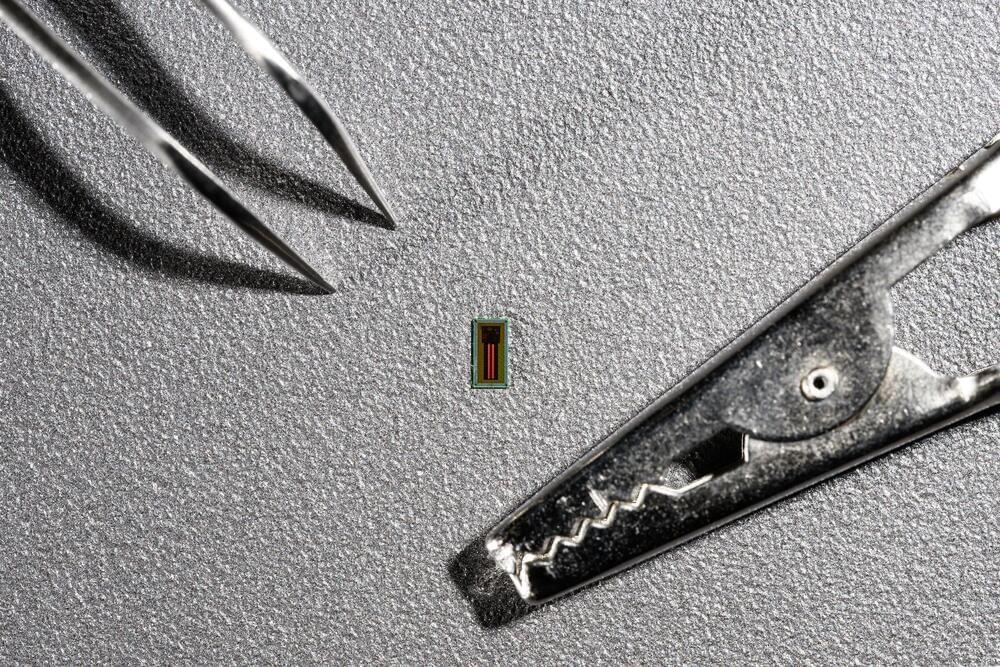The brain-machine interface race is on. While Elon Musk’s Neuralink has garnered most of the headlines in this field, a new small and thin chip out of Switzerland makes it look downright clunky by comparison. It also works impressively well.
The chip has been developed by researchers at the Ecole Polytechnique Federale de Lausanne (EPFL) and represents a leap forward in the sizzling space of brain-machine-interfaces (BMIs) – devices that are able to read activity in the brain and translate it into real-world output such as text on a screen. That’s because this particular device – known as a miniaturized brain-machine interface (MiBMI) – is extremely small, consisting of two thin chips measuring just 8 mm2 total. By comparison, Elon Musk’s Neuralink device clocks in at comparatively gargantuan size of about 23 × 8 mm (about 0.3 x .9 in).
Additionally, the EPFL chipset uses very little power, is reported to be minimally invasive, and consists of a fully integrated system that processes data in real time. That’s different from Neuralink, which requires the insertion of 64 electrodes into the brain and carries out its processing via an app located on a device outside of the brain.
